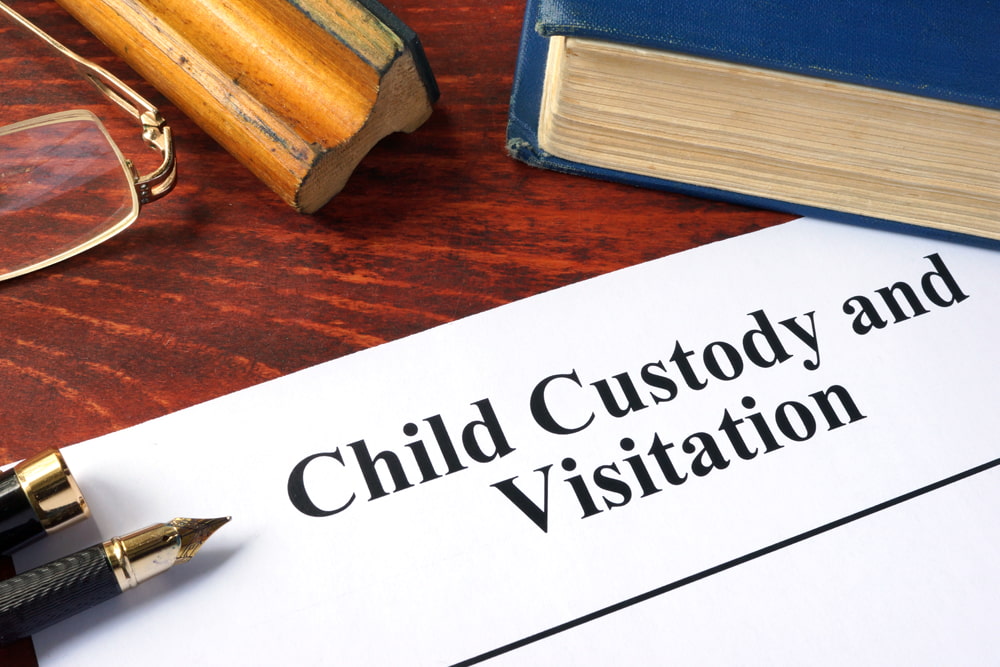
Child visitation schedules and parenting time allotment in Michigan are determined by the best interests of the child. Each case is different and various factors influence court decisions regarding the child’s best interests. When parents divorce, the court typically aims to establish a custody and visitation plan that serves the child’s well-being. In other words, Michigan law emphasizes the child’s interests as the guiding principle when determining custody and parenting time.
When is it Necessary to Establish a Visitation Schedule?
The physical custody decision dictates the necessity of a visitation schedule. For example, if the soon to be divorced couple will share physical custody 50-50, a visitation schedule may not be required. Although, some couples prefer to have holidays and other events listed in parenting arrangements. If one parent has sole physical custody, or 80-20, 70-30, 60-40 custody, a visitation schedule is recommended. The 80-20, 70-30, or 60-40 refer to the percentage of time children spend with the physical custodial parent. Since, one parent provides the home base for the child, the other parent is entitled to parenting time. Also, the child has a right to see both parents.
Factors Considered in Determining Parenting Time
The Child Custody Act of 1970 Section 722.27 states:
Parenting time shall be granted in accordance with the best interests of the child to have a strong relationship with both of his or her parents.
The Child Custody Act mandates that parenting time encourages a strong relationship between child and both parents. Considering the law, parents should attempt to work out a reasonable visitation schedule. Your attorney may guide you in this matter. If parents remain unable to agree upon a visitation plan, the court will decide what’s best for your child.
Michigan courts consider various factors when deciding parenting time and physical custody, including:
- The mental and physical health of the parents
- The child’s age, mental and physical health
- Where does the child live now?
- The child’s preference (depending on age and maturity)
- Any history of domestic violence or emotional abuse
- Will the parent encourage a healthy relationship with the other parent?
- Any other relevant factors
What is the Michigan Parenting Time Guideline?
The Michigan Parenting Time Guideline is an extensive publication developed by the Michigan Supreme Court and the State Court Administrative Office’s Friend of the Court Bureau. This guide provides information regarding parenting time. The publication includes suggestions for scheduling and modifying court orders later on, if necessary. Of course, this guide doesn’t replace an attorney’s advice. However, it may provide some useful information.
What May Happen if a Custodial Parent Denies Visitation?
In Michigan, when a custodial parent denies visitation without a good reason, it is considered a violation of a court-ordered custody agreement. First, seek legal advice if this happens. Next, one of the following typically occurs:
- Documentation- Your attorney may advise you to document the time, place, date, circumstances, and any communication regarding each instance.
- Mediation or Counseling- The court may order mediation or counseling.
- File a Motion- If mediation fails your attorney may advise you to file a motion for a hearing.
- Contempt of Court- The custodial parent may be found in contempt of court. If this happens, serious consequences may result. Penalties may include fines, attorney fees, or even jail time.
- Modification of Custody Order- The court may consider modifying the court order.
Remember, the court is interested in the best interests of the child. So, it remains important for both parents to keep lines of communication open and follow court orders UNLESS your child’s safety is at risk.
When Can a Custodial Parent Deny Visitation?
This is highly discouraged unless there is a valid reason. Any time a child’s safety is at risk the custodial parent must protect the child. This includes a noncustodial parent showing up drunk to drive a child to a different location. At no time should a custodial parent allow a child to be a passenger in a car with a drunk (or high) driver. In fact, calling the police may prevent a possible injury accident. Another time a child may remain with the custodial parent is when the child is very ill. Of course, this should be discussed with the non-custodial parent. The visit could be rescheduled. However, dealing with a substance abuser, or an abusive ex-spouse is a dangerous and tricky situation. Legal advice is mandatory in these volatile situations. Court Orders may require modification to protect the child. Remember, your child depends on you for protection.




